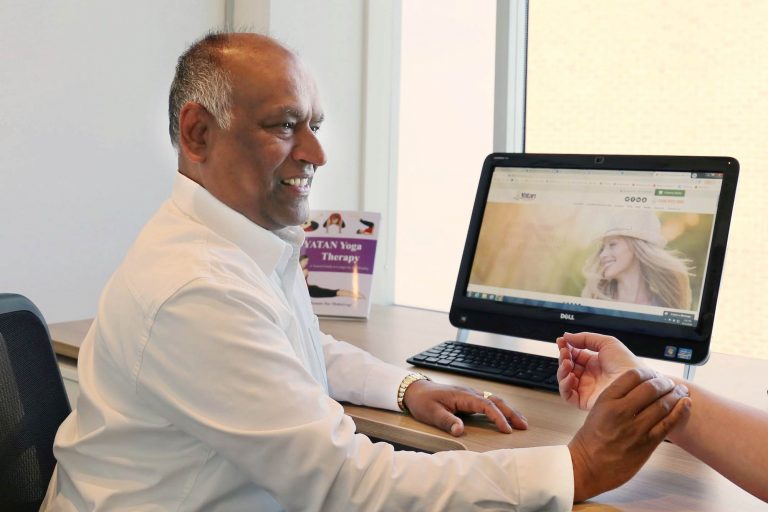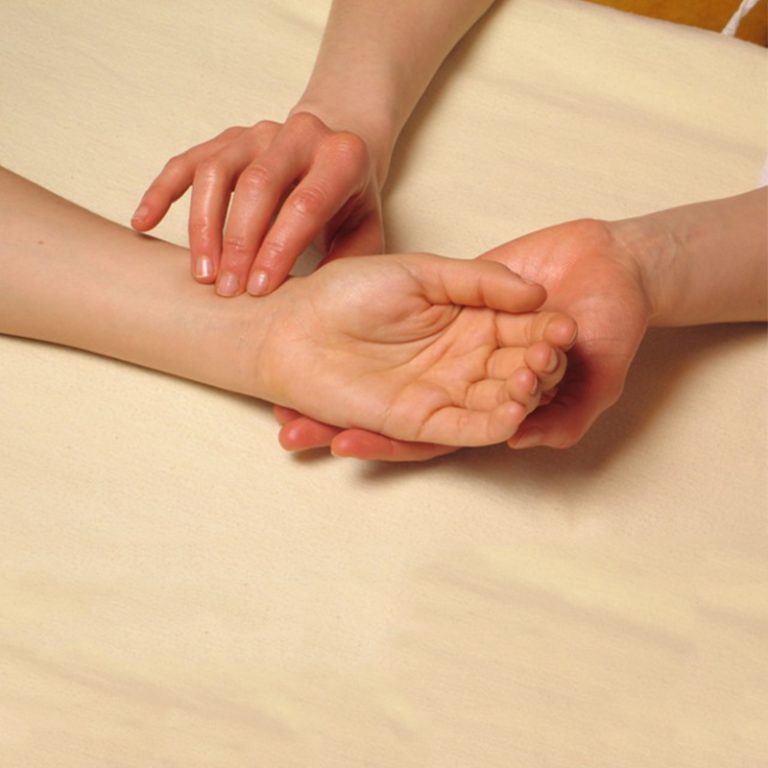
The Real Causes of Autoimmune Diseases – An Ayurvedic Perspective
3 Reasons You’re Struggling to Heal Autoimmune Diseases
Autoimmune diseases have been more prominent now than ever before in our human history. Over 1 million Australians are affected by some kind of chronic autoimmune illness, with common autoimmune diseases like Thyroiditis, Rheumatoid Arthritis and Diabetes affecting 5% of people (Australasian Society of Clinical Immunology and Allergy).
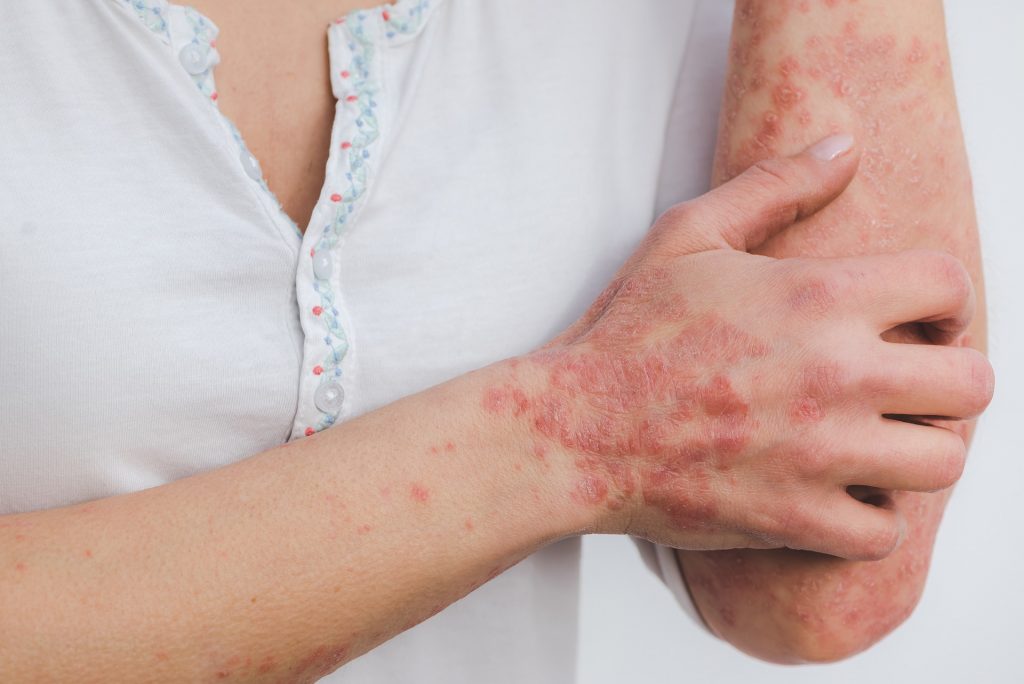
And while the Western medicine perspective is more focused on managing and suppressing symptoms, Ayurveda treats the matter of autoimmune disorders very differently. Ayurveda can also very well explain why autoimmune diseases are so difficult to cure and how they occur in the first place.
What Causes Autoimmune Disease?
The immune system’s job is an essential one: to fight and protect the body against foreign invaders (bacteria, viruses, fungi, etc.). It does this by producing antibodies. But when it comes to autoimmune disease, these antibodies are overproduced and attack the body’s own cells, which in turn leads to inflammation.
Please read the autoimmune diseases causes below. Identifying these autoimmune disease causes is also significant to get to the root of the treatment.
- A significant lack in nutrients or nutrient absorption
- A localised problem (in a particular organ, for example)
- Excess mucus and congestion in the body
- Lack of lubrication of the spine, cartilage, and internal organ walls
- An autonomic nervous system dysfunction
- Overmedication or exposure to immunosuppressing treatment of another condition (i.e. chemotherapy)
- Organ failure that may be left undiagnosed
- Hormonal imbalance (endocrine or metabolic disorder)
- Toxicity
- Stress, worry, and/or anxiety
- Underlying infections
- Genetics
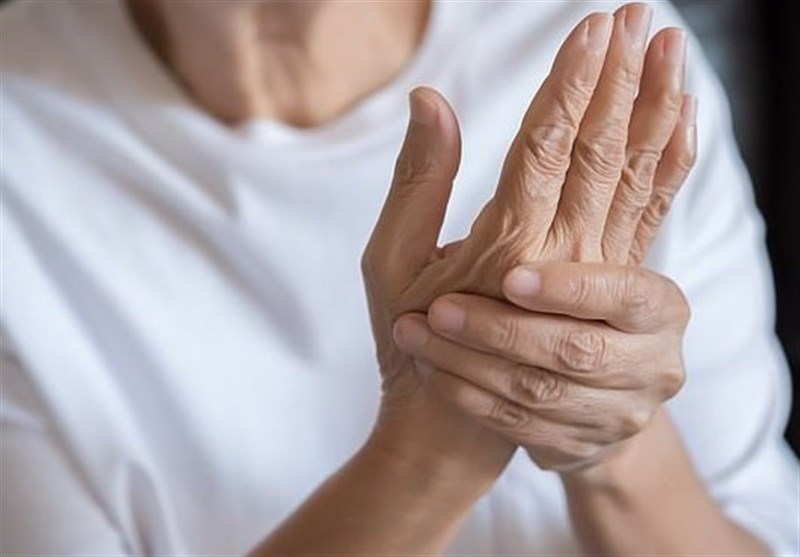
It is important to note that each autoimmune disorder is different and affects different parts of the body. Some of the most common autoimmune diseases are:

- Alopecia
- Angioedema
- Ankylosing spondylitis
- Celiac Disease
- Chronic Fatigue Syndrome
- Crohn’s Disease
- Diabetes Mellitus Type 1
- Endometriosis
- Eczema
- Fibromyalgia
- Graves’ Disease
- Interstitial Cystitis
- Lupus
- Lyme Disease
- Ménière’s Disease
- Multiple Sclerosis
- Myocarditis
- Psoriasis
- Raynaud’s phenomenon
- Rheumatoid Arthritis
- Rheumatoid Vasculitis
- Sjogren’s Syndrome
- Thyroid Disease
- Ulcerative Colitis
- Urticaria
As you can see, one disease is quite unlike the other. You might now be wondering: So then, which is the best way to treat these diseases?
3 Reasons You’re Struggling to Heal Autoimmune Disease
Autoimmune diseases are sometimes successfully treated, or at least managed, with contemporary medicine. Other times, the results are minimal to non-existent. According to Ayurveda, the reasons for this might be one or more the following:
Reason #1: Immunosuppression doesn’t work. The drugs prescribed by Western doctors these days are designed to suppress the overstimulated immune system with the hope that it may stop overproducing antibodies. But suppressing the immune system may a) not work, and b) cause further problems down the line by affecting other functions (digestion, enzyme production, blood sugar, kidney function, liver function, etc).
Reason #2: The medicine you’re taking isn’t tackling your individual body type.In Ayurveda, knowing the affected dosha is pivotal to treating any kind of disease; the same goes for autoimmune diseases, which is why they cannot be cured with a ‘one-size-fits-all’ drug that may work for some people but not for others. An Ayurvedic practitioner will also look into the dosha of each organ and assess the internal doshas, so it even goes beyond your body type.
Reason #3:The root cause is left undiagnosed and unaddressed. If you have autoimmune disease symptoms does not necessarily mean that the immune system is to blame; actually, the immune system’s over response is usually triggered by some other kind of internal problem. It could be a particular organ dysfunction, a spinal inflammation, a hormonal disorder, a blood sugar problem, even a bad diet and off-the-charts stress levels. But you will never know unless you look into the deeper causes behind your autoimmune disease and receive proper diagnosis. And this must happen before being given a treatment plan. Otherwise, all you will be treating are the generic symptoms rather than the root cause.
The Ayurvedic Perspective: Autoimmune Disease and Your Dosha
Ayurveda is a 5,000-year-old system that views health from a holistic standpoint. That means that the body is viewed and treated as an entire system — a localised, organ-specific problem is never addressed as a standalone, separate problem. As far as autoimmune diseases are concerned, Ayurveda also understands the connection between the immune system and our bones (osteoimmunology) and how diseases such as Arthritis develop. The body constitution (dosha) also plays a significant role in addressing and treating the autoimmune disease.
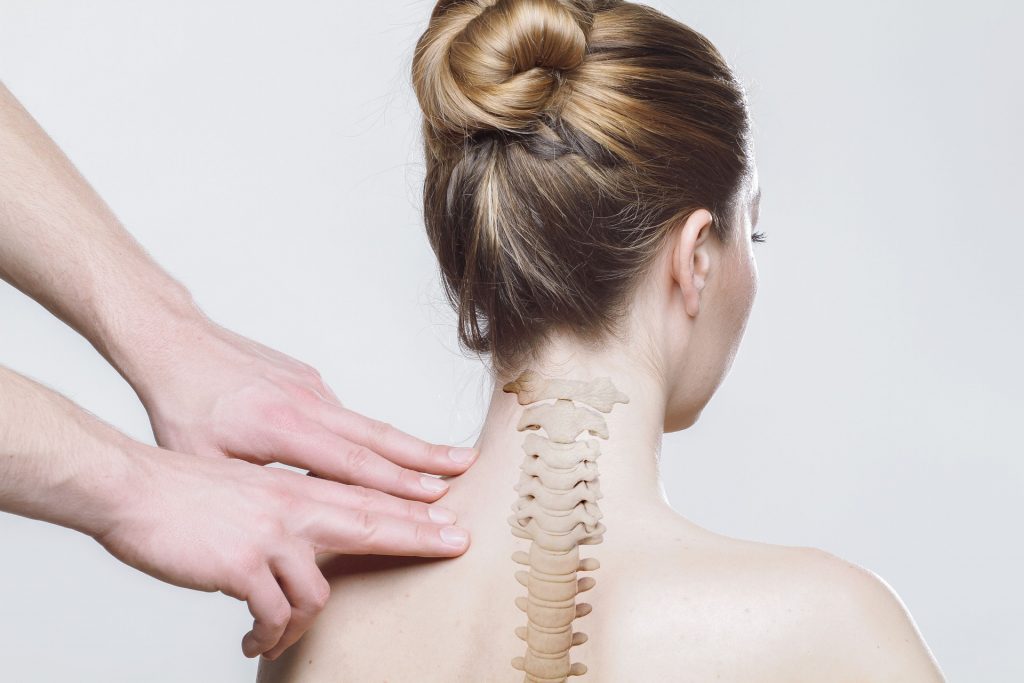
According to Ayurveda, disease is caused by one or more internal dosha imbalances. But it can often be a challenge to identify how many of these doshas are being affected and are thus causing or exacerbating the disease. A general rule of thumb is the following list of autoimmune diseases per aggravated dosha:
Vata aggravation: Rheumatoid Arthritis, Ankylosing Spondylitis, Multiple Sclerosis, other musculoskeletal, neural and endocrine disorders.
Pitta aggravation: Psoriasis, Eczema, Vasculitis, Urticaria, and endocrine disorders.
Kapha aggravation:Angioderma, Leukoderma, Urticaria, Diabetes (due to obesity or metabolic syndrome), Graves’ disease, Thyroid disease and other endocrine disorders.
Suppose you suffer from one of the above conditions; How will you know which dosha is affected? In the case of endocrine disorders, for example, it can be any of the doshas, even all three! This is where the Ayurvedic practitioner can come in and make a properassessment.
Ayurveda’s Autoimmune Disease Treatment Plan
Identifying autoimmune disease symptoms and treating your autoimmune disorders starts with understanding that:
- The disease is unique
- Your body is unique
- Consequently, your treatment SHOULD BE UNIQUE and tailored specifically for you
If you choose to visit the YATAN Ayurvedic Centre for such a treatment plan, you can expect the following procedure:

- The Ayurvedic practitioner will initially analyze your autoimmune disease symptoms, take your pulse, identify your dosha, and record your medical history. The aim is to pinpoint the root cause of your autoimmune disease and the dosha affecting each organ.
- A treatment plan will then be devised and given to you. This may include:
- Lifestyle changes
- Dietary recommendations
- Individual or systemic medication
- YATAN Yoga therapyand Yoga pose recommendations
- Pranayama (breathing techniques such as Ujjayi, Nadi Shodhana, and Bhramari pranayama)
- Ayurvedic herbs (such as Shatavari, Ashwagandha and Brahmi)
- One or more follow-up sessions will be required to track your progress, make any necessary tweaks to your existing treatment plan, and re-assess any symptoms that may persist.
When should I see my doctor?
If you feel any of the above-mentioned autoimmune disease symptoms or if you may feel a sudden sense of fatigue, skin issues, or recurring symptoms, then it’s time to visit a healthcare provider. A healthcare provider will be able to identify the causes of your autoimmune disease on time and may provide a plausible solution.
CONCLUSION
Autoimmune diseases are staggeringly increasing, but you can do something about it if you find the right therapy that works for you. If you’re the kind of person who would rather go with an all-natural, side-effect-free treatment, then maybe Ayurveda is the solution for you.
At our YATAN Holistic Ayurvedic Centre in Sydney, we can offer a fully customised autoimmune disease treatment plan that is designed specifically for your dosha and your overall needs. Unlike contemporary drugs, our medications do not suppress the immune system or make you feel uncomfortable in any way.
Frequently Asked Questions
How do you deal with an autoimmune diagnosis?
An autoimmune diagnosis can be managed by lifestyle changes such as incorporating healthy meals into your diet, practicing pranayama, reducing stress, etc. Please call 1300 552 260 if you are dealing with autoimmune disorders.
Should I be worried if I have an autoimmune disease?
Living with an autoimmune disease can bring its own set of challenges for an individual. However, identifying and managing the symptoms may help an individual overcome such worries.
When should you go to the hospital for an autoimmune disease?
If you feel any symptoms related to an autoimmune disease or have a fever or skin issue that is recurring in nature, you may visit a hospital for further diagnosis.
How do doctors treat autoimmune disease?
Typically, in allopathic treatments, doctors may put you on immunosuppressive drugs or strong steroids to manage your auto-immune condition.
How do I know if I’m autoimmune?
Autoimmune diseases can appear with a variety of symptoms. Some of the common symptoms may include joint and muscle pain, swelling, fatigue, and weakness. However, individual symptoms may differ from person to person.
How can I treat autoimmune disease naturally?
Visiting an Ayurvedic practitioner is the best way to treat autoimmune disease naturally. An Ayurvedic practitioner will first assess your personal constitution (vata, pitta, and kapha) and then customise a unique treatment plan for your condition.
What ayurvedic herbs boost the immune system?
Ayurvedic herbs like shatavari, ashwagandha, and brahmi may help boost your immune system. However, it’s essential to consult an Ayurvedic practitioner before starting to consume any herbs.
What is the most serious autoimmune condition?
Some of the most serious autoimmune conditions include lupus, rheumatoid arthritis, and multiple sclerosis.
What foods heal autoimmune disease?
Foods that may help manage an autoimmune condition include:
Turmeric
Green Tea
Berries
Seasonal Fruits.
green, leafy vegetables.
But please note that consuming which food in what quantity is essential, and for that, you may call us at 1300 552 260.
Can diet cure autoimmune diseases?
It is hard to say that a diet may completely cure an autoimmune disease, but it may help manage your autoimmune symptoms.
Conclusion
Autoimmune diseases are staggeringly increasing but you can do something about it if you find the right therapy that works for you. If you’re the kind of person that would rather go with an all-natural, side effect-free treatment, then maybe Ayurveda is the solution for you.
At our YATAN Holistic Ayurvedic Centre in Sydney we can offer a fully customized autoimmune disease treatment plan that is designed specifically for your dosha and your needs overall. Unlike contemporary drugs, our medications do not suppress the immune system or make you feel uncomfortable in any way.
Are you suffering from an autoimmune disease like Psoriasis, Arthritis, Diabetes, Thyroid disease or Vasculitis? To speak to one of our consultants about a treatment plan contact us today or book an appointment online.
Disclaimer: This article is not intended to substitute medical advice. All information and resources referenced, including medicinal preparations, fitness, dietary and lifestyle recommendations, are based on the opinion of the author. Please consult a medical practitioner if you require advice or are experiencing any worrisome symptoms.


